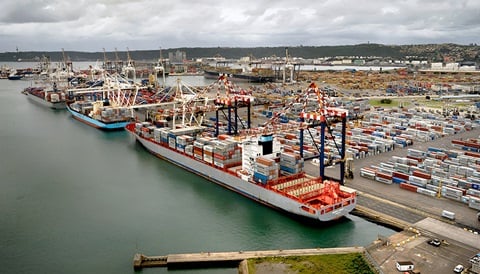Nigeria ends fuel subsidy
President Bola Tinubu fulfils his pledge bringing cheer to the market

The newly elected President of Nigeria Bola Tinubu has commenced his term by abolishing the longstanding fuel subsidy, fulfilling a key pledge from his presidential campaign. While the investment community has lauded this action, ordinary Nigerians are already grappling with the resultant burden.
Fuel subsidies were first introduced in Nigeria during the 1970s and became officially entrenched in 1977 with the passing of the Price Control Act. This law enforced a price cap, making it unlawful to sell certain items, petrol included, beyond a set price. The subsidy on diesel was later abolished, and financial support for kerosene was eliminated in 2016. However, the subsidy on petrol persisted. While keeping petrol prices low for decades, the subsidy has become a significant financial drain, costing the government $10bn last year.
In addition to the financial burden, a recent report by PwC highlights several other issues associated with the fuel subsidy. It says the subsidy disproportionately favoured the wealthy and businesses, rather than the less fortunate. Households in the bottom 40% of the income distribution contribute to less than 3% of all fuel purchases. The lion's share of fuel is consumed by private corporations, public transport services, and government bodies. Moreover, the fuels predominantly used by lower-income groups, such as diesel and kerosene, have already been deregulated. Thus, the subsidy primarily aided those who can afford fuel at market rates, not those with the greatest need.
Furthermore, the permeable borders between Nigeria and its neighbouring countries established a lucrative market for smugglers. These individuals bought large quantities of petrol at the subsidised rate in Nigeria and then sold them at market prices in adjacent nations. Additionally, the subsidy was applied at the point of importation (or supply) rather than at the pump, which promoted arbitrage and other forms of corruption.
Despite acknowledging that removing the subsidy would place additional pressure on citizens, Tinubu asserted it would release funds for education, power supply, transport infrastructure, and healthcare.
Following the announcement in late May, petrol prices in Nigeria have nearly tripled, resulting in increased transportation costs that have consequently affected food prices. Inflation hit 22.41% in May, and Alex Sienaert, the World Bank's lead economist for Nigeria, expects the figure to rise further. A similar attempt to abolish the subsidy in 2012 by then-president Goodluck Jonathan was retracted due to extensive protests. Although the recent removal provoked outrage among labour unions, an indefinite strike was halted following negotiations with the government. While the World Bank and IMF advocated for the subsidy's elimination to stimulate development in Africa's most populous nation, critics contend that the government's efforts to lessen the impact on the poorest have been inadequate. Amnesty International has called for immediate measures to protect the rights of those most affected by the subsidy cut, emphasising the necessity to confront escalating hunger, unemployment, and the declining standard of living.
Sweeping changes
In addition to scrapping the fuel subsidy, Tinubu also introduced a host of other reforms within his first month in office. In a major move, he suspended central bank governor Godwin Emefiele, a year prior to the end of his term. Emefiele was arrested shortly after. While the exact cause for his detainment is unclear, he has been facing numerous allegations of misconduct throughout his term in office.
In the wake of Emefiele’s ousting, the Central Bank of Nigeria (CBN) loosened its hold on the naira-US dollar exchange rate, which led to its official value plummeting by as much as 36%. The CBN previously restricted official forex trading to businesses and individuals through a complex system of multiple exchange rates, offering limited liquidity. This prompted many to turn to the black market, where the dollar traded more freely but at a hefty premium compared to the official rate. Hard currency shortages made it challenging for investors to move money out of Nigeria. Foreign businesspeople and investors identified these forex restrictions as one of the key barriers to operating in Nigeria.
The introduction of reforms was greeted positively in the financial markets. Nigerian banking stocks are having their best quarter in six years, with a 34% increase as of 27 June. However, it remains uncertain whether the authorities will allow the currency to float entirely freely or opt for a more moderated approach.
Tinubu has also taken action to reform Nigeria’s troubled power sector, which has long hindered the nation's economic growth. The new legislation enables each of Nigeria's 36 state governments to regulate their own electricity markets, a function previously held by the federal government. Despite Nigeria's installed electricity-production capacity exceeding 16,000MW, less than 5,000MW is available to the grid. This new legislation presents an opportunity for each state to stimulate competition, foster innovation, and explore varied approaches to licensing and regulating private sector investments in electricity.
Tinubu's swift pace of reform is likely to meet resistance and could have political repercussions. It's well-known that numerous vested interests profited from systems like the fuel subsidy and the multiple exchange rate. These actors are unlikely to go down without a fight.
References
‘First inaugural address by President Bola Ahmed Tinubu delivered on May 29, 2023 at the Eagle Square, Abuja’, The State House Abuja, 29 May 2023
‘Fuel subsidy in Nigeria - issues, challenges and the way forward’, PwC, May 2023
‘Nigeria’s central bank governor suspended amid 'ongoing investigation'’, News24, 10 June 2023
‘Fuel subsidy cut will save Nigeria but impose burden: President’, Al Jazeera, 12 June 2023
‘Nigeria power reform heralds biggest sector shakeup in 20 years’, Bloomberg, 12 June 2023
‘How electricity reform act will attract more investments’, Daily Trust, 12 June 2023
‘Nigeria eurobonds rise after suspension of Central Bank governor’, Al Jazeera, 12 June 2023
‘Tinubu acts quickly in first days as Nigerian President’, Bloomberg, 13 June 2023
‘Nigeria allows naira to drop more than 36% on official market’, Reuters, 14 June 2023
‘A necessary ‘sacrifice’: Nigeria ends almost 50 years of fuel subsidies’, France24, 14 June 2023
‘Naira plunges as Nigeria lets currency break through control’, Bloomberg, 14 June 2023
‘Semafor Africa Newsletter’, Semafor Africa, 15 June 2023
‘EXCLUSIVE: How detained Nigeria's Central Bank Governor, Emefiele implicated suspended head of anti-corruption body, EFCC, Bawa in naira redesign scam’, Sahara Reporters, 15 June 2023
‘Nigeria could save $5.1 bln this year from reforms, says World Bank’, Reuters, 27 June 2023
‘Muslim faithful groan as subsidy removal squeezes family budgets’, The Guardian, 27 June 2023
‘Nigeria's banking stocks surging, set for best quarter since 2017’, Business Insider Africa, 27 June 2023








